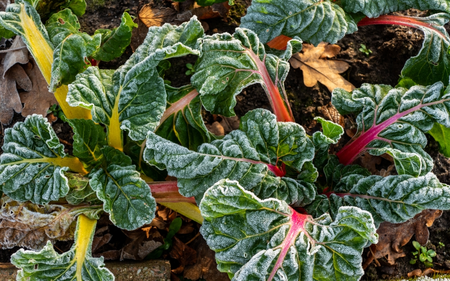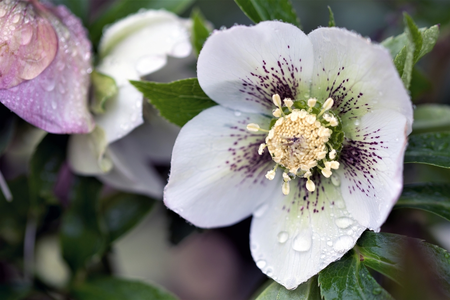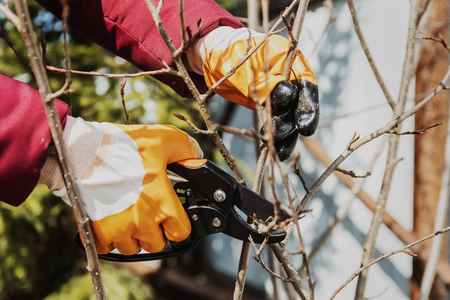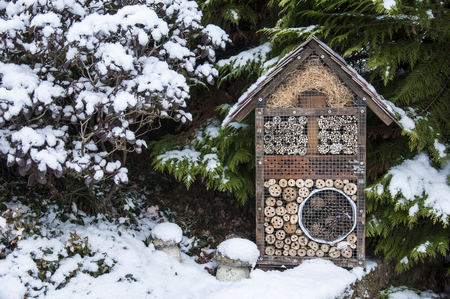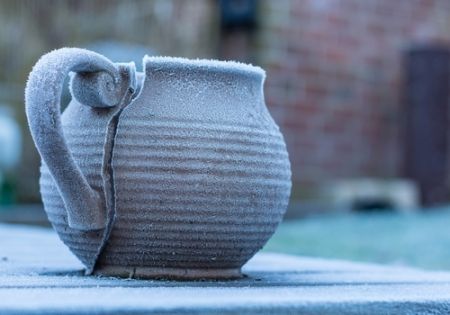
As the weather gets colder, some plants need more protection than others, especially plants in containers. Here are our tips on protecting container plants from the cold this winter.
Why container plants need winter protection
Plants in containers are more at risk in cold weather than other plants. Their roots are not as well insulated as they would be if they were planted in the ground, and wet compost can freeze during icy weather, killing plant roots. Since water expands when it freezes, frozen waterlogged compost can also damage or even break containers. So it’s important to give your container plants some protection when the temperature drops.
 Protecting container plants in winter
Protecting container plants in winter
When protecting potted plants in winter, the aim is to provide extra insulation for the roots, stop the soil getting waterlogged, and give added protection for any frost-tender or tropical plants.
- If possible, move frost-tender plants inside, into a greenhouse or conservatory if you have one. A sunny windowsill also works well for small pots.
- Wrap outdoor containers in bubble wrap or horticultural fleece to insulate them. If you don’t have any old bubblewrap to spare, you could re-use old plastic bags filled with shredded paper or straw. Or, if your pots are small, bury them up to their rims in the ground.
- Move pots against a sheltered house wall which will provide some warmth, and group them together so that they provide insulation for each other
- To improve drainage and reduce the risk of waterlogged compost, put pots up on pot feet.
- Drape horticultural fleece over tender plants during cold snaps, but remember to remove this during the day to let air circulate and stop the buildup of fungal diseases.
Frost-resistant and frost-proof containers
For a pot to be frost-proof, it needs to be water-resistant. Plastic and fibreglass pots are frost-proof, as are many glazed ceramic pots. Unglazed terracotta pots have a porous structure that allows the pot walls to absorb water. This works well in summer, as excess water can seep out and the soil can breathe. In a frost, however, water absorbed into the pot walls can freeze and expand, causing the pot to flake or even crack.
Always check the frost rating on a pot before you buy it. Pots marked as ‘frost-resistant’ are tougher than those with no rating, but may still crack or flake in a hard frost, whereas frost-proof pots should survive.
Of course, it’s always essential to choose pots with good drainage holes, as no matter how frost-proof your pot, it will still crack if it’s filled with waterlogged compost that freezes solid and expands.
We know how important your plants are to you, so visit us at Lakeside to find everything you need to protect your containers from the cold this winter.






